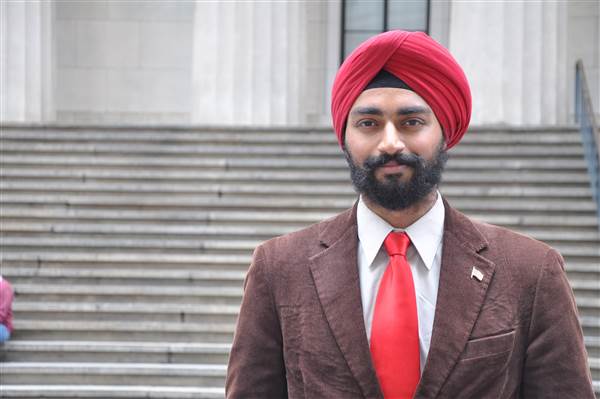Singh v. McConville
Scoreboard
Case Snapshot
In March 2016, Becket filed a lawsuit on behalf of Specialist Kanwar Bir Singh, Specialist Harpal Singh, and Private Arjan Singh Ghotra and their right to serve in the Army without abandoning their Sikh faith. In April 2016, the Army took a historic step toward allowing Sikhs to serve in the military by accommodating Specialist Kanwar Singh, Specialist Harpal Singh, and Private Arjan Ghotra, at least long enough for them to complete basic training. In January 2017, that victory was made permanent when the Army issued new regulations stating that Sikh soldiers will not be forced to abandon their religious turbans, unshorn hair, or beards throughout their military career.
Status
Share this Case

Case Summary
Soldiers of faith and service
Specialist Kanwar Bir Singh, Specialist Harpal Singh, and Private Arjan Singh Ghotra are three Sikh soldiers who can now freely serve in the U.S. Army while following their faith.
Specialist Kanwar Singh was highly regarded for his ROTC service during college and achieved the highest possible score on the military entrance exam when applying to join the Massachusetts Army National Guard. Specialist Harpal Singh is fluent in Punjabi, Hindi, and Urdu, all three of which are highly sought after by the Army. He also has significant expertise in telecommunications technologies, having deployed around the world—including to Ghana, Russia, and the Middle East—to develop telecommunications systems. Private Arjan Ghotra joined the Virginia Army National Guard at age seventeen after serving for several years in the Civil Air Patrol and the Virginia Defense Force.
All three men exemplify the values of the Army. Yet all three faced discrimination for wearing turbans, unshorn hair, and beards according to their faith.
Discriminating against the faithful
These three soldiers sought their rights under the Religious Freedom Restoration Act (RFRA). Passed in 1993 by President Clinton, RFRA prohibits the Army from suppressing a soldier’s sincere religious exercise without a compelling government reason.
In this instance the government had no good reason for discriminating against Sikh Americans. Nearly 100,000 soldiers have exemptions from the Army’s beard ban for medical reasons. Our military’s Special Forces commonly wear beards on the front lines in Afghanistan. And observant Sikhs have always served, and continue serving, in the militaries of the United Kingdom, Canada, Australia, India, and elsewhere. Canada’s current Secretary of Defense is a fully-bearded Sikh, who previously served alongside American forces in Afghanistan.
Becket defends Sikh soldiers
This is the second lawsuit launched by Becket in defense of Sikh Americans seeking to serve the country. In Singh v. Carter, Becket also represented decorated Army Captain Simratpal Singh, who filed a similar suit against the Army for the right to keep his beard according to his faith.
In March 2016, Becket filed a lawsuit on behalf of Specialist Kanwar Bir Singh, Specialist Harpal Singh, and Private Arjan Singh Ghotra and their right to serve in the Army without abandoning their Sikh faith.
In April 2016, the Army took a historic step toward allowing Sikhs to serve in the military by accommodating Specialist Kanwar Singh, Specialist Harpal Singh, and Private Arjan Ghotra, at least long enough for them to complete basic training. In January 2017, that victory was made permanent when the Army issued new regulations stating that Sikh soldiers will not be forced to abandon their religious turbans, unshorn hair, or beards throughout their military career.
Importance to religious liberty:
- Individual freedom: Individual religious exercise encompasses more than just thought or worship—it involves visibly practicing the signs of one’s faith. Religious individuals must be free to follow their faith in all aspects of life, especially those who serve in our military to defend the freedom of all Americans.
- Public Square: Because religion is natural to human beings, it is natural to human culture. It can, and should, have an equal place in the public square.
- RFRA: The Religious Freedom Restoration Act ensures that the government cannot burden the religious exercise of individuals or groups to violate their deeply held beliefs without compelling interest or when there are reasonable alternatives to doing so.